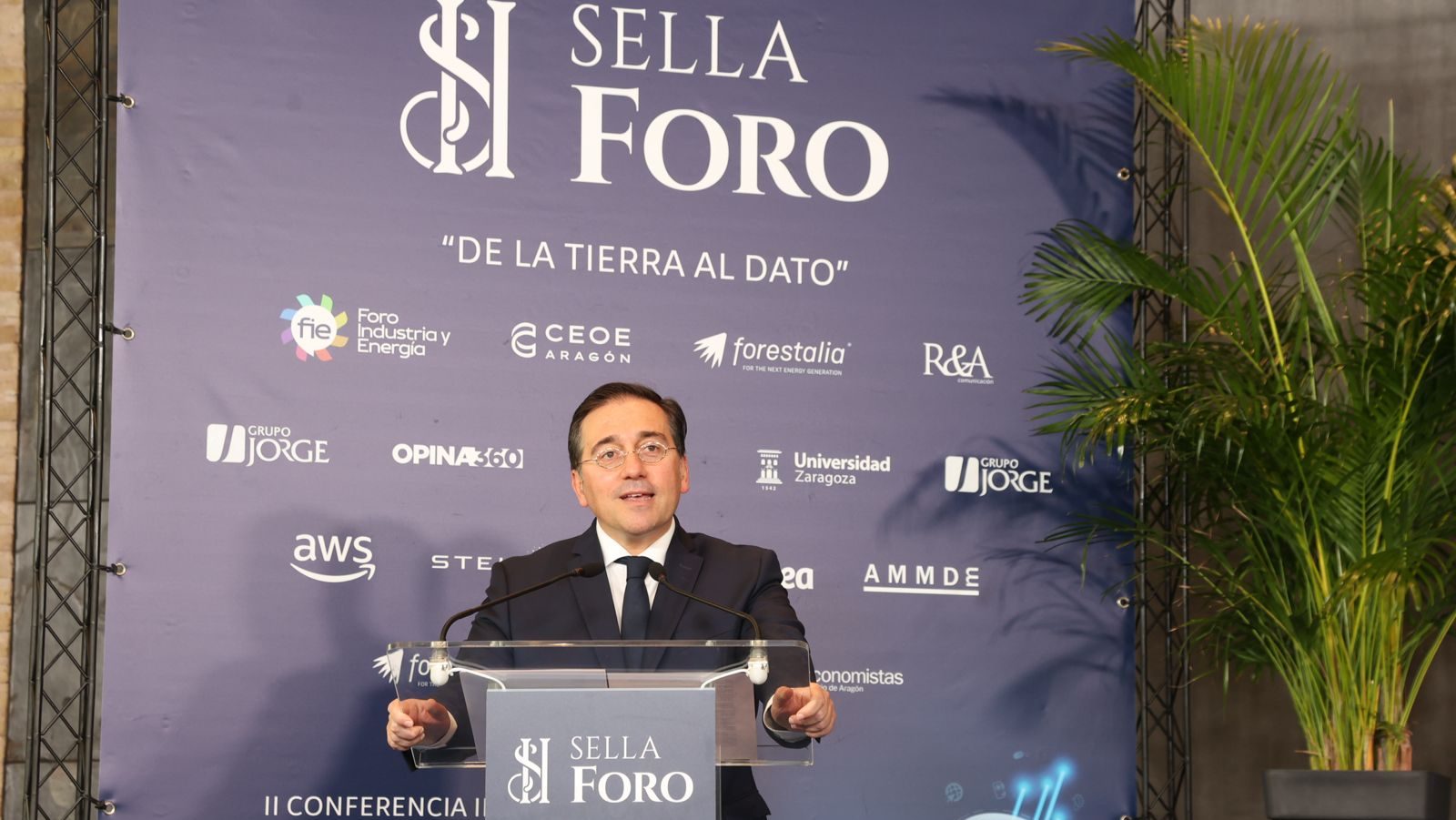Villanueva de Gállego (Zaragoza) hosted Foro Sella 2024 on May 23rd, an international conference on renewable energies that brought together European, national, and local authorities and experts in industry and energy who addressed European industrial and energy policy.
The Minister of Foreign Affairs, European Union, and Cooperation, José Manuel Albares, closed the day by highlighting the economic agreements announced today by Forestalia and yesterday by Amazon Web Services, emphasizing the importance of Aragon as a “spearhead of green energy.”
“Aragon is probably the most excellent community in Spain in terms of renewable energies. Because of its location, but also because of its specialist teams. Its figures are unmatched at the community level. You are leaders in ecological transition,” he emphasized.
For Albares, energy is not only a cross-cutting issue that affects people or companies but also “a matter of State.” “It is the cornerstone of the world,” he underscored, also stating that “it has no political color or ideology.” The head of the Foreign Affairs portfolio concluded by pointing out that “Spain, for the first time, is in a position to combine land, more data, more people. This formula guarantees success in achieving global energy transition.”
The end of the day also saw the participation of Cristina Lobillo, Director of Energy Policy at the EU, who recalled the great moment of change we are experiencing with elections in European institutions in the coming weeks and in more than 50 countries during this year.
She also recalled all the measures taken at the European level in recent years to address the challenges posed by the pandemic or the war in Ukraine, emphasizing the creation of a platform for joint gas purchases, the signing of agreements to replace Russian gas, or the establishment of agreements to import hydrogen in the future with different countries.
However, she pointed out that there are problems to be solved. “We have just emerged from gas dependency and we will enter into a dependence on critical minerals,” she pointed out, recalling that China processes a large proportion of lithium, graphite, cobalt, or copper.
Technological revolution linked to renewable revolution
During the day, the Vice President of the Government of Aragon, Mar Vaquero, intervened, stating that the “technological revolution” taking place in Aragon “is closely related to the revolution of renewable energies.”
“Aragon is a region worth investing in,” she pointed out, thanks to several factors: its strategic position in terms of land, political stability, and social dialogue that favors coexistence and can attract these investments. “This momentum positions Aragon not only as a leading autonomous community in energy but also as a region that harnesses renewable energies for current and future companies in all industrial sectors,” she added.
Need for a unified market
David Robinson, Senior Research Fellow at the Oxford Institute for Energy Studies, addressed some inherent problems in the region, such as fragmentation, lack of venture capital to support technological companies, lack of fossil resources, or marginal cost competition that brings market prices close to zero. He also criticized that “almost all” energy decisions are made at the national level.
In this regard, the expert advocated the need to create a European energy regulator and an operator that is regional rather than national. “Only with a single and unified European market can we have the lowest possible prices. Spain should support this model, thus becoming one of the recipients of funding, and with this model, it would increasingly become a recipient of funds,” he argued.
Robinson is aware that these proposals imply “reforms that will not be popular.” In his opinion, the existence of an electric operator separate from the network owner will be rejected, but “this is increasingly necessary. We are going to have to unite gas networks, CO2, etc.”
Finally, the researcher pointed out that “the main innovations in distributed energy resources (including communication technology and battery control, heat pumps, and other behind-the-meter resources) that are emerging will greatly help, but we still need some technological and cost advances in storage.”
The event, promoted by the Industry and Energy Forum, CEOE Aragon, Forestalia, Opina 360, and the Aragon Energy Cluster, was held at Hábitat Sella, in Villanueva de Gállego (Zaragoza).

